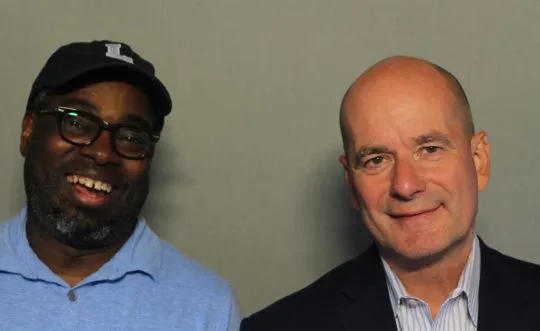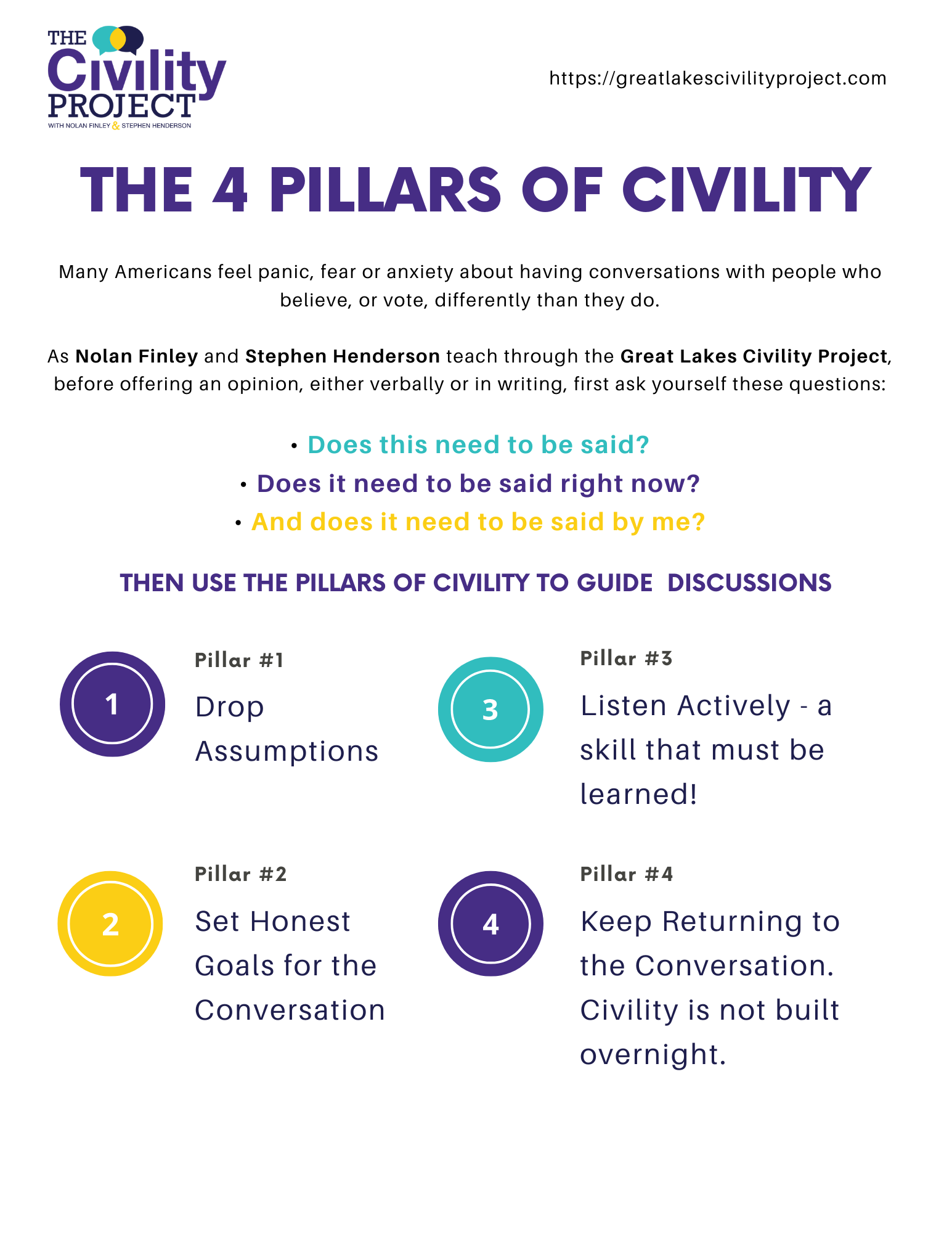Bringing civility to difficult conversations
Putting the very different editorial page editors of Detroit’s two daily newspapers on air together was sure to generate fireworks.
And it did.
“Just about any issue that came up, Nolan and I could have an argument about,” journalist Stephen Henderson said about Nolan Finley, his co-host on the Detroit Public Television show One Detroit.
But then the two started talking off-air. What did they like to do? Families, hobbies, interests? From there a deep and lasting friendship was born—and an idea for how to ease the tensions of today’s divisive culture and create more civility.
On Sept. 5, Henderson and Finley joined a virtual group of nearly 100 Rogel staff to discuss their initiative, the Civility Project, and share ideas to develop more respectful and enriching conversations in our lives. The event was organized by the Oncology Clinical Trials Support Unit’s DEI committee.
“The Civility Project is not a kumbaya exercise designed to get everyone to get along and not have disagreements,” said Henderson, a long-time reporter and editor at the Detroit Free Press and now executive editor at BridgeDetroit. “We get after each other, we get upset. We really disagree, and it’s genuine. We’re not afraid of that disagreement. At the same time, there is a civility to one another.”
Finley, who has spent his career as a reporter and editor at the Detroit News, took it a step farther: “He and I will never agree. But our society depends on disagreement and debate. We don’t want people to avoid conversations.”
Instead, they said, people need to talk to each other in a meaningful and productive way. They created four key pillars:
- Drop assumptions. Get to know people before forming a picture of who they are.
- Set honest goals for the conversation. When you talk to someone you disagree with, what are you hoping to get out of that discussion?
- Listen actively. It’s not about prepping your next witty retort but really seeking to hear and understand what the other person is saying.
- Keep returning to the conversation. Make an investment in the relationship. Even if you get angry, don’t walk away.
Finley noted that people come to very different viewpoints based on the information, experience and personal values they have gathered throughout their life.
“The first step in building a civil, productive relationship with someone you disagree with is to find out what those values are. Before you engage in a difficult conversation, sit down and ask questions,” he said. “Once you start to have the conversation and apply the actual reasons people feel the way they do, it might not change your views at all, but hopefully it instills respect for the other person and the way they’ve lived their lives. It’s a step toward civility.”
The Civility Project encourages active listening, which goes beyond merely letting someone else talk.
“In a lot of cases, we’re not actually listening. When someone else is talking, we’re thinking, ‘as soon as that person’s done here’s what I’m going to say back.’ Or we’re judging what they’re saying as they’re saying it,” Henderson said.
He has two tests for himself when listening. First is whether he can repeat back the essence of what the person said. Second is whether he has questions. This leads to an actual exchange of ideas.
As vitriol, misinformation and a decided lack of civility cycle through social media and 24-hour news networks, Henderson and Finley go back to individual relationships: recognizing what’s important, who’s important and the opportunities to make meaningful connections.
“What we’re talking about here is doing things differently in the spaces where you can have a say,”
Henderson said. “Think about your family, neighbor, school or religious community. The people you interact with every day are the folks with whom you have the opportunity to change the value of the relationships and the way those interactions go.”
They also note that some of the political incivility is intentional, to make people feel anxious or fear what could happen. Don’t reward this, Finley said. Avoid media outlets, social media, businesses and other sources that benefit from fueling anger.
Henderson and Finley began as co-hosts of One Detroit in 2008. They’ve been close friends since, and both spoke passionately about how important that friendship is.
“We’re not out to convert one another. I know I’m never going to change Steve’s fundamental views. I’m never going to convert him to my way of thinking,” Finley said. “But where’s the fun in that?”


